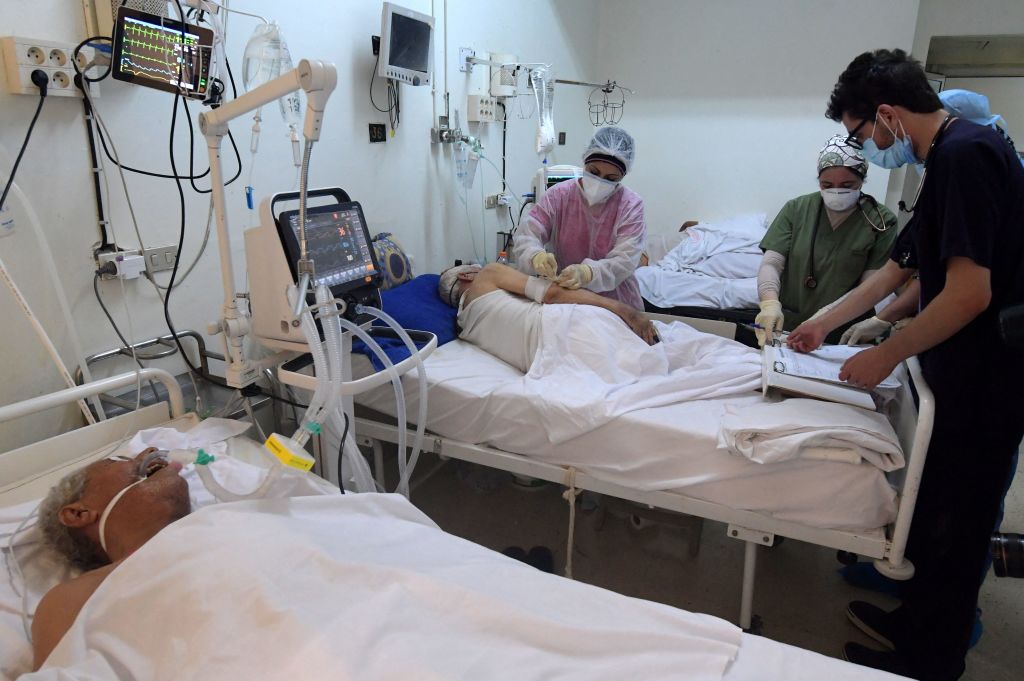WHO Statistics Show Toll of COVID-19 on the Continent
ADF STAFF
Life is seemingly returning to normal in many areas, but the COVID-19 pandemic is far from over, as reporting from the World Health Organization (WHO) suggests.
In late October, the organization reported that more than 12.3 million COVID-19 infections and 256,900 deaths have been recorded in Africa since the pandemic began. The statistics were reported about the time scientists around the world identified an array of new omicron sublineages.
South Africa is by far the hardest-hit country on the continent, reporting just more than 4 million infections and more than 102,300 deaths.
South Africa’s death toll was trailed by Tunisia, which reported more than 29,200 deaths and more than 1.1 million infections; Egypt, which reported nearly 24,800 deaths and more than 515,400 cases; Morocco, with almost 16,300 deaths and nearly 1.27 million infections; and Ethiopia, which recorded almost 7,600 deaths and nearly 494,000 cases.
By contrast, the WHO numbers showed that Burundi reported only 15 deaths and less than 50,500 infections, followed by São Tomé and Príncipe, which reported 77 deaths and under 6,300 infections; Eritrea, which recorded 103 deaths and less than 10,200 infections; the Central African Republic, which reported 113 deaths and less than 15,300 cases; and Sierra Leone, which recorded 126 deaths and under 7,800 cases.
The numbers come with a caveat, as reporting and surveillance are not consistent across the continent and some countries have been criticized for underreporting data.
“Testing and sequencing rates remain low globally and the continued proliferation of new variants remains concerning,” WHO Director-General Dr. Tedros Adhanom Ghebreyesus said during a mid-November news conference. “WHO continues to urge caution.”
As the new year approached, the WHO reported more than 300 omicron sublineages circulating around the world. About 95% of the subvariants are related to BA.5. The most common symptoms related to the new array of subvariants are cough, severe fatigue, headache, fever, runny nose, itchy throat and muscle pain, according to a report on livemint.com.
Previously, the pandemic jumped from one COVID-19 lineage to the next, such as from delta to omicron, Dr. Moritz Gerstung at the University of Heidelberg, Germany, told New Scientist magazine.
“Typically, a new variant came and displaced all or most other preceding lineages very quickly, but now we’re seeing a real mix of subvariants with much more incremental changes that result from them acquiring a portfolio of mutations all over the viral genome,” Gerstung told the magazine.
Smaller mutations are helping the new subvariants evade immunity, Gerstung added.
In South Africa, as in many African nations, the pandemic posed challenges that required innovative solutions.
The WHO in November highlighted strides made by health officials in the Free State Province, where the initial response to the pandemic was centralized at the provincial level. That means that districts gathered data on paper, sent the information to the provincial level for analysis, which then offered feedback to the districts to inform their response.
By the time action was taken, infections and deaths were already rising.
“We realized quickly that this was not going to be sustainable,” Priscilla Monyobo, WHO provincial focal person, said on the organization’s website.
That led to a decentralized approach at the district level, which improved contract tracing, outbreak investigations, community engagement, and data management and analysis. This approach led to faster outbreak detection and improved targeted response.
“We called it innovation out of necessity,” Bandile Ntombela, chief information officer at the Department of Health Free State, said on the WHO website. “Innovate, otherwise people will die.”


Comments are closed.